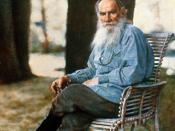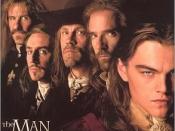The Mask
They create the mask, a thing to hide behind, a veil before the eyes that removes faces and replaces them with targets. They fill our ears with glory, to drown out the screams, and replace the bodies of those we have loved with medals shiny and new, washed clean of the blood that stained them. Those that have worn the mask come from behind it forever changed, never knowing that it was the mask that changed them. The uniform removes the ears and imprisons thoughts, drawing lines of black and white until the gray beneath is lost to the eye. "The military world is characterized by the absence of freedom --in other words, rigorous discipline-- enforced inactivity, ignorance, cruelty, debauchery and drunkenness. And yet this is the highest caste in society, respected by all. Tens of thousands of men meet ... to massacre one another: to kill and maim, and then they will offer up thanksgiving services for having slain such vast numbers (they even exaggerate the number) and proclaim a victory, supposing that the more men they have slaughtered the more credit to them."
(Tolstoy). We see this from the very beginning of Ernest Hemingway's A Farewell to Arms. And through the eyes of Frederic Henry, an American Lieutenant in the Italian army we begin to know the mask.
The reader is thrown into the novel with a statement that shows a major part of the mask, the cold and calculated way humans are reduced to numbers. "At the start of the winter came the permanent rain and with the rain came the cholera. But it was checked and in the end only seven thousand died." (Pg. 4) The young men lost are regarded with as much sympathy as one can muster for 'expected necessary...


